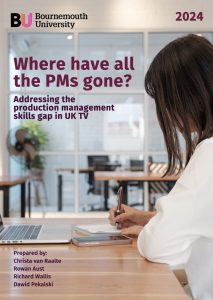 New research into production management in the UK’s TV industry has found that there is a corrosive cultural divide between ‘production’ and ‘editorial’. This distinction between those involved in the ‘creative’ aspects of making tv and those who manage its more logistical aspects is what lies at the heart of much of the discontent experienced by today’s production managers, the research has found.
New research into production management in the UK’s TV industry has found that there is a corrosive cultural divide between ‘production’ and ‘editorial’. This distinction between those involved in the ‘creative’ aspects of making tv and those who manage its more logistical aspects is what lies at the heart of much of the discontent experienced by today’s production managers, the research has found.
‘We have known for a long time that production managers lack visibility and feel undervalued’, explains Dr Christa van Raalte, who led the project. ‘When three-quarters of respondents told us last year that they were seriously considering leaving we knew the problem was deeply rooted. The aim of this latest research has been to gain a much clearer understanding of what it is that attracts people into production management roles in the first place and what we could do better to keep them. What’s the point of investing in the recruitment of new production talent if we can’t hang on to the ones we’ve got?’
The new report launched this week, Where have all the PMs gone? Addressing the production management skills gap in UK TV, builds on an earlier survey with in-depth interviews. The result is a detailed and nuanced account of the experience of working in production management. The report makes eleven recommendations for change, from clearer job definitions and more equitable pay rates, to improved training and development.
The report concludes that there is much to be done to ensure that production management is properly recognised and understood both in and beyond the industry, that PMs are treated equitably and respectfully, and that employers are able to recruit and retain the workforce they need. This cannot be achieved without addressing ingrained working culture and practices. The challenge this represents for the wider industry, claims the report, should not be underestimated.
The project’s research team is based at the University’s Centre for Excellence in Media Practice (CEMP) and funded by the British Academy and Leverhulme Trust.
The full report and a shorter summary are available at https://eprints.bournemouth.ac.uk/39530/
Tagged / CEMP
CEMP research published by Samsung

CEMP’s Digital Capability study has now been published by Samsung.
CEMP books – ‘bumper crop’
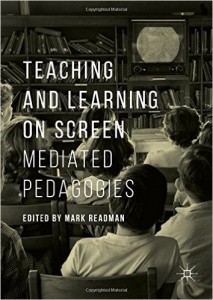
November / December see the publication of several books authored / edited by CEMP researchers.
Doing Text: Media After the Subject (Julian McDougall, Auteur / Columbia University Press – with Pete Bennett)
Teaching and Learning on Screen: Mediated Pedagogies (Mark Readman, Palgrave MacMillan)
Popular Culture and the Austerity Myth: Hard Times Today (Julian McDougall, Routledge – with Pete Bennett)
Also forthcoming this academic year –
Digital Media, Culture and Education: Theorising Third Space Literacies (Julian McDougall, Palgrave MacMillan, with John Potter)
The Routledge International Handbook of Media Literacy Education (Julian McDougall, Routledge, with Belinha de Abreu, Alice Lee, Paul Mihaildis and Jad Melki)
Doing Theory on Education: Using Popular Culture to Explore Key Debates (Julian McDougall, Routledge, with Andy Cramp).
BU academics publish in the Special Anniversary Issue of the Journal of Children and Media
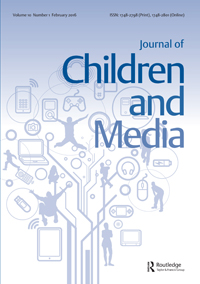 Bournemouth University’s Dr Ashley Woodfall and Dr Marketa Zezulkova have recently been published in the Special Anniversary Issue of the Journal of Children and Media. The journal is the most significant interdisciplinary one in the field of children and media, and the special issue features big-picture commentaries and analyses that address the challenges and opportunities facing children and media researchers.
Bournemouth University’s Dr Ashley Woodfall and Dr Marketa Zezulkova have recently been published in the Special Anniversary Issue of the Journal of Children and Media. The journal is the most significant interdisciplinary one in the field of children and media, and the special issue features big-picture commentaries and analyses that address the challenges and opportunities facing children and media researchers.
As the journal editorial states: Ashley Woodfall and Marketa Zezulkova focus on the lived media engagement of children as dialogic and holistic, requiring us “to recognise the child as entry point, centre and interpreter of their media experience and learning.”
The paper is available on an open access basis, funded by BU’s open access publication fund.
Woodfall A & Zezulkova M., 2016. What ‘children’ experience and ‘adults’ may overlook: phenomenological approaches to media practice, education and research. In: Journal of Children and Media. 10(1) 98-106.
Serendipitous Impact and the Power of No: lessons from CEMP’s Research Away Day
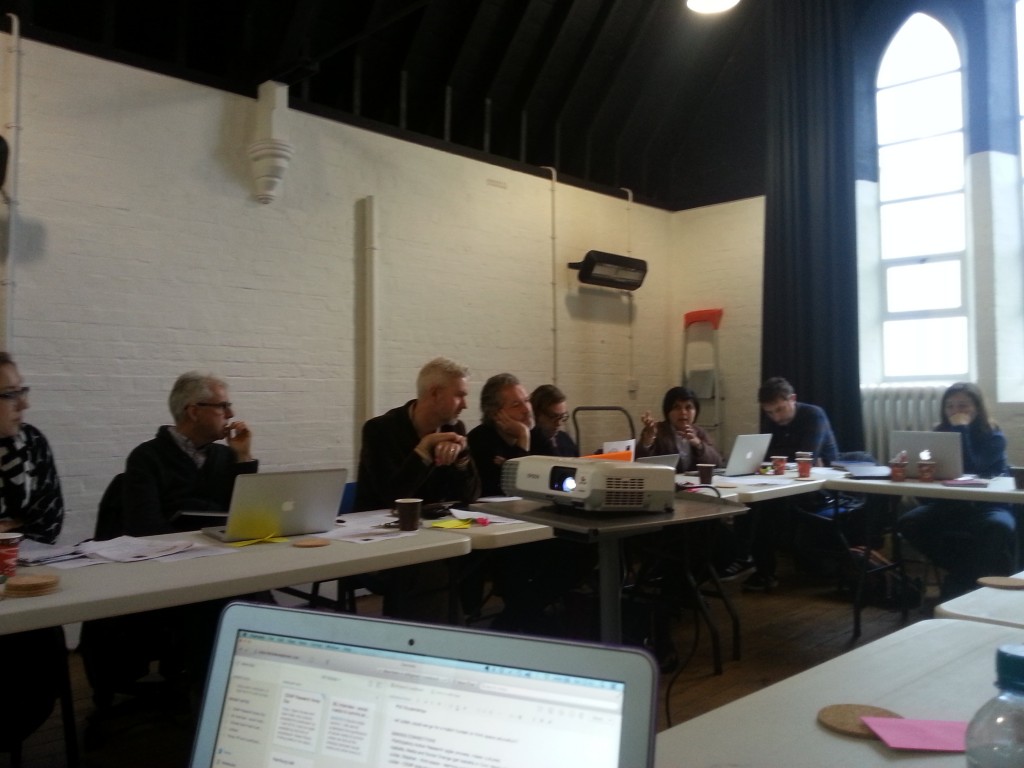 On Friday February 13, 2015 eighteen researchers across all stages of their careers came together for our CEMP Research Away Day. Hosted at the Old School House By the Sea in Boscombe, the day focused on how we can foster our media & education research culture, from REF strategy to collaboration building, both at BU and beyond.
On Friday February 13, 2015 eighteen researchers across all stages of their careers came together for our CEMP Research Away Day. Hosted at the Old School House By the Sea in Boscombe, the day focused on how we can foster our media & education research culture, from REF strategy to collaboration building, both at BU and beyond.
Kicking us off with REF and Impact, Rebecca Edwards from RKEO spoke about key issues including the new Open Access Guidelines and how we can work to evidence our impact. She summed up 8 key points to takeaway:
1. Know your Open Access
2. Go Gold when possible – use RKEO fund
3. Collaborate with other institutions and international colleagues
4. Identify and developing Impact Case Studies
5. Evidencing your Impact as you go along (testimonials, visitor counts, etc)
6. Promote your research on the BU research website
7. Aim to increase research income
8. Focus on PhD registrations and completions
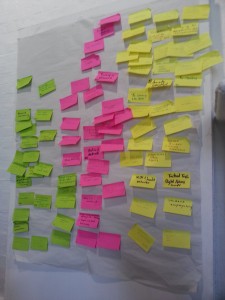 Sound like a gigantic task for just one person? These goals are not for individuals to accomplish alone. Working in teams and groups is key for doing innovative research, producing outputs and building successful bids. Making connections between our work is a necessary beginning.
Sound like a gigantic task for just one person? These goals are not for individuals to accomplish alone. Working in teams and groups is key for doing innovative research, producing outputs and building successful bids. Making connections between our work is a necessary beginning.
Isabella Rega’s Making Connections session got the group talking about where our interests intersect. Using three different coloured post-it notes, we wrote down the issues (green), methods (pink) and stakeholders (yellow) that we work with. Participatory research methods, HE teaching and learning, and Education and Social Change emerged as key overlaps.
Out of these connections some concrete plans emerged, including turning fusion project output into educational resources and a participatory methods workshop day.
From project plans to project afterlife, we shifted to speak about documenting and evidencing impact. We looked at four case studies of research projects including ETAG and Copyrightuser.org, their significance and who they reached. Rebecca Edwards provided advice on how we evidence, measure and track our project’s impact. Sometimes these impacts can be anticipated, but more often there is serendipity and surprise.
-Tiers of influence
-Is influencing an organisation enough? How do we understand what this was?
-Testimonials
-Formal letters from key institutions
-If you’ve done research at another institution it doesn’t count at our institution. Impact stays at institution. Reason is because it is usually about groups.
-Entire groups can be rewarded for impact
-Demonstrate the evidence of impact on policy —> Following the story
-Distinct contribution of the University
-Can’t always see the impact from the outset —> serendipity involved, not always
-visitors counts and the result of them
After a tasty, if unidentifiable food-filled lunch from Bosconova, we ran a reflection session on barriers to research bidding and publishing. Designed to get us thinking about the personal and structural constraints on our research, the session helped us room-source practical solutions to common challenges.
Richard Wallis got us back up on our feet with a enthusiastic round of Research Speed Dating. Partnering up with colleagues for short bursts of time, we quickly exchanged project ideas offering feedback and fostering more research connections. Julian McDougall and Richard Berger rounded out the afternoon with a go-around. Everyone shared their upcoming plans and outlined the support they would need to achieve them.
Described by participants as a “fantastic day,” we left feeling the best kind of inspired: more excited and less exhausted about the research plans that lay ahead for CEMP’s growing educational research community.
Anna Feigenbaum is a CEMP Fellow. To find out more about CEMP and how to get involved, check out the website: http://www.cemp.ac.uk/
CIPPM Researchers launch Copyright Resource for A/AS Level Media Studies
Researchers at the Centre for Intellectual Property Policy and Management (CIPPM) in collaboration with CREATe, the RCUK Centre for Copyright and New Business Models in the Creative Economy at the University of Glasgow have launched an educational web resource aimed at A/AS Level Media Studies. The project, which was carried out during 2013-2014, was funded by RCUK under a contract with CREATe, University of Glasgow (Principal Investigator: Dr. Dinusha Mendis, Co-Director, CIPPM).
The Centre for Excellence in Media Practice (CEMP) at Bournemouth University is also part of the collaboration.
The web resource and downloadable PDF forms part of the already established Copyrightuser.org (initially funded by the Fusion Investment Fund, 2012-2013) and is titled, Contemporary Media Regulation: A Case Study in Copyright Law.
In particular, this educational web resource addresses Critical Perspectives in Media, Section B: Contemporary Media Issues and was approved by Oxford Cambridge and RSA (OCR) Examination Board at their Annual Conference on 21 March 2014.
The resource was disseminated to a large network of Schools in England and Wales in January 2015 and during 2015-2016, the researchers will map the impact of this educational resource by identifying how many Schools / students have opted to study Copyright Law as part of the Critical Perspectives in Media, Section B: Contemporary Media Issues.
The value of this educational resource has already been identified by the UK Government. In October 2014, Copyrightuser.org was mentioned by Mike Weatherley MP in his report Copyright Education and Awareness, in which he specifically mentioned this resource as an attempt to introduce copyright law into the AS/A Level Media Studies curriculum in schools in England and Wales. A write-up about it can be found here.
The content is shaped to enable teachers to explain the complexity and importance of copyright in media, and for the students to research copyright regulation and demonstrate their understanding within the Contemporary Media Regulation exam question.
This educational resource provides teachers with simple and straightforward information about copyright law. The focus is to bring together different perspectives on copyright issues. There is a consideration of the historical, contemporary and future copyright issues, with an emphasis on present.
The resource was formally launched in February 2015 by the Arts and Humanities Research Council (AHRC) and the press release titled ‘What we Should Teach Students about Copyright Law’ can be accessed here.
The educational resource was produced by a team consisting of:
Authors: Ms. Hayleigh Bosher and Dr. Dinusha Mendis (CIPPM)
Illustrations: Mr. Davide Bonazzi
Editor: Professor Ronan Deazley (Professor of Copyright Law, CREATe, University of Glasgow)
Educational Resource Development: Dr. Julian McDougall (CEMP)
Production: Mr. Bartolomeo Meletti (CREATe, University of Glasgow)
Questionnaire Respondents: see here
Media and Information Literacy
BU’s Dr Julian McDougall is the author of one of a series of influential reports on the state of media education in Europe, being released today at UNESCO at the First European Forum on Media and Information Literacy.
The 29 independent reports provide valuable insight into the state of media education.
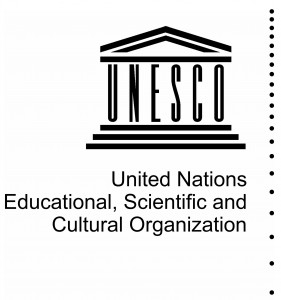 Dr McDougall said: “The UK report presents a paradox. Whilst the UK still leads the way in the media education curriculum, with established courses from secondary to higher education, we are trailing our European neighbours in policy mandate, political support, teacher training and funding for the broader project of providing media and information literacy as an entitlement for all citizens, as described in the UNESCO declaration.”
Dr McDougall said: “The UK report presents a paradox. Whilst the UK still leads the way in the media education curriculum, with established courses from secondary to higher education, we are trailing our European neighbours in policy mandate, political support, teacher training and funding for the broader project of providing media and information literacy as an entitlement for all citizens, as described in the UNESCO declaration.”
External assessments are key to improving Media and Information Literacy in Europe as the rapidity of digital transformations requires radical policy changes. The reports focus on the policy frameworks, the action plans for capacity building and the role of engaged stakeholders. The main findings will be disclosed at UNESCO together with a set of recommendations and a Declaration on “Augmented MIL in the Digital Era”.
The First European Forum on Media and Information Literacy is a joint effort with UNESCO and the European Commission.
The complete list of experts and their national reports can be accessed and downloaded at www.translit.fr
Deadline! Panic. Click Submit: Grants Academy Diary Part 3
 Email flurries. Cut-and-paste frenzies. Forgetting if draft v3.1.5 is most recent despite diligent attempts to effectively dropbox. Sound familiar? Grant deadline time demands we are at our sharpest, but more often finds us high on caffeine and flung headlong into chaos. Whether one clicks submit with confidence, hesitation or blind faith, when the closing hour comes, we breathe a sigh of relief. It’s out of our hands and into the 1 in 12 success rate abyss.
Email flurries. Cut-and-paste frenzies. Forgetting if draft v3.1.5 is most recent despite diligent attempts to effectively dropbox. Sound familiar? Grant deadline time demands we are at our sharpest, but more often finds us high on caffeine and flung headlong into chaos. Whether one clicks submit with confidence, hesitation or blind faith, when the closing hour comes, we breathe a sigh of relief. It’s out of our hands and into the 1 in 12 success rate abyss.
Like many colleagues, I’ve been on grant teams where ‘click submit’ was done with varying shades of satisfaction. But this time, something felt different. This wasn’t any ordinary bid. This was my Grants Academy bid. A bid that had gone through three days of extensive surgery via R&KE OP’s staff development programme on bid writing run by expert consultant Dr. Martin Pickard. It benefited from Martin’s expertise, as well as the critical eyes of five interdisciplinary BU colleagues also attending the workshop. Further developed by two CI collaborators, two external peer reviewers, BU Quality Approver Richard Berger and the devoted attention of my research officer Pengpeng Ooi, never before had I been on a grant handled with so much personalised and professional care. This time when I clicked submit, there wasn’t a sentence worth changing.
In two earlier diary posts I discussed the daunting task of getting started with bid writing and my (somewhat unfounded) fears of impact agendas. After the first two workshops we each went off, brains buzzing with new tips and tricks, to independently work on our bid drafts. But rather than spend hours crafting confident cases for support, those two weeks during the start of spring semester saw little time to devote to redrafting. Like the students we sometimes bemoan, most of us ended up in a last minute ‘meet the deadline’ whirlwind, turning in work we were only half proud of.
Building on session one’s tips about project formulation and session two’s insights on expressing the wider value of our research, session three provided a simulated peer review process to help us better understand how bids are evaluated and scored. This final stage of the Grants Academy began with a discussion of review criteria, followed by a tally of the scores we gave fellow academy members, and then individual rounds of feedback on each of our six draft bid submissions. While none of us broke most research funder’s thresholds of 70% approval, few of us felt we deserved to, at least not yet.
Offering a supportive environment to watch our work get torn apart — a necessary if uncomfortable part of the bid enhancement process — day three of Grants Academy proved as beneficial as the first two. Rather than disheartening, the patterns and repetition of criticism shared across our cross-disciplinary colleagues’ reviews helped us to hone in on what desperately needed fixing. This peer review process was topped off with one-to-one feedback from Martin on where to go next with our bid’s development.
After the session a few of us stayed behind, manically typing away, not wanting to forget any of our colleagues’ sage advice. I knew my deadline was only a few weeks away and I wanted that 60 up to a 90, to fill the gap of the 1 in 12 success rate with sure-fire reasons why we deserved funding. Over the next two weeks my CIs and I racked up 57 emails, 3 hours of skype meetings and 5 budget drafts — all for just a £10,000 bid. In the words of our Grants Academy Guru, “To compete, we train.”
My biggest takeaway tip for colleagues registered in an upcoming Grants Academy session, or those thinking about enrolling, would be to come with a bid in the early to mid-stages of development. (NOT something either brand new or nearly finished.) This will allow you to get the most out of the developmental process of the workshops. Attending the sessions forces you to make time for drafting by providing structured deadlines and feedback to carry forward. I chose to develop a small Fusion Funded pilot project.
Anna Feigenbaum is a Lecturer in CMC group at the Media School. As part of her CEMP Fellowship she created this diary of her time at the Grants Academy. You can read her Day One Diary post here and Day Two here.
CEMP Success: Three BU Colleagues approved as Higher Education Academy Associates
 Last week colleagues from BU’s Centre for Excellence in Media Practice (CEMP) and Centre for Excellence in Learning (CEL) won appointments to the newly approved Higher Education Academy (HEA) Associates programme. CEMP’s Director Julian McDougall, Head of CEMP’s Postgraduate Research Richard Berger, and CEMP Fellow Anna Feigenbaum from the Media School’s CMC will join the re-developed Academic Associates community. As Associates they will take part in research projects, event programming and developing the HEA’s UK and International consultancy. The HEA is the UK’s main provider of resources, events and workshops relating to learning and teaching in higher education, servicing 28 different disciplines. In addition to running its professional recognition Fellowship programme–that many BU staff are a part of–the Higher Education Academy also offers a robust funding scheme for education research and practice. Through their Academic Associate roles, Julian, Richard and Anna look forward to strengthening CEL and BU’s relationship with the HEA. Continuing CEMP’s track record of internationally recognised higher education research, this role will enhance the centre’s engagement in media education research consultancy, shaping innovative teaching practice and influencing HE policy.
Last week colleagues from BU’s Centre for Excellence in Media Practice (CEMP) and Centre for Excellence in Learning (CEL) won appointments to the newly approved Higher Education Academy (HEA) Associates programme. CEMP’s Director Julian McDougall, Head of CEMP’s Postgraduate Research Richard Berger, and CEMP Fellow Anna Feigenbaum from the Media School’s CMC will join the re-developed Academic Associates community. As Associates they will take part in research projects, event programming and developing the HEA’s UK and International consultancy. The HEA is the UK’s main provider of resources, events and workshops relating to learning and teaching in higher education, servicing 28 different disciplines. In addition to running its professional recognition Fellowship programme–that many BU staff are a part of–the Higher Education Academy also offers a robust funding scheme for education research and practice. Through their Academic Associate roles, Julian, Richard and Anna look forward to strengthening CEL and BU’s relationship with the HEA. Continuing CEMP’s track record of internationally recognised higher education research, this role will enhance the centre’s engagement in media education research consultancy, shaping innovative teaching practice and influencing HE policy.
BU Researchers launch a new online copyright resource at the AHRC Creative Economy Showcase London

 Following the internal launch at BU on the 14th February 2014, BU Researchers at the Centre for Intellectual Property Policy and Management (CIPPM) launched the Copyrightuser.org at The Arts and Humanities Research Council (AHRC) Creative Economy Showcase.
Following the internal launch at BU on the 14th February 2014, BU Researchers at the Centre for Intellectual Property Policy and Management (CIPPM) launched the Copyrightuser.org at The Arts and Humanities Research Council (AHRC) Creative Economy Showcase.
The event was held at Kings Place, London, on Wednesday 12th March 2014. The Showcase demonstrated the outputs and innovations of AHRC investments in the Creative Economy through presentations, workshops and exhibitions. The sectors exhibited on the day, included fashion, design, video games, architecture, broadcasting, archives, digital technologies and dance.
Amongst the various funded initiatives showcased on the day, Copyrightuser.org held a prominent exhibition stand and exhibited the website which was complemented by large posters, bookmarks and myth/reality cards (illustrated below) which explained the most common myths about copyright.
This high-profile event was attended by over 450 delegates and included policy-makers, business leaders in the creative industries, knowledge exchange practitioners, directors of research in universities, senior representatives from partner organisations in the Creative Economy, other strategic funding agencies in the sector, representatives from the AHRC’s investments in the Creative Economy and other stakeholders.
Keynote speakers included amongst others Sebastian Conran (Designer), the Hon David Willetts (Minister of State for Universities and Science), Ed Vaizey MP (Minister for Culture, Communications and Creative Industries) and Professor Rick Rylance (CEO, AHRC).
Highlights from the day can be streamed here.
Copyrightuser.org was funded by the BU Fusion Investment Fund in 2012 and was developed by the Business School’s Centre for Intellectual Property Policy and Management (CIPPM) in collaboration with Centre for Excellence in Media Practice (CEMP). Following the success of the Fusion Funded project, the CIPPM-led team went on to secure RCUK funding provided by CREATe in August 2013 to extend the scope of the project. Phase II of the copyrightuser.org is now underway.
The launched online resource aims to make UK copyright law accessible to creators and members of the public. This 1-minute video captures the concept behind the Copyrightuser.org project.
Using quantitative and qualitative methods the site aims to provide answers to the most pressing concerns that creators and the public have about copyright law. To achieve these aims, interviews with creators where conducted and a video for each creative sector was produced demonstrating their thoughts and questions about copyright, see the musicians video here for example. Secondly, 200 frequently asked questions posted by users online were sourced, analysed and coded down to the 20 most common.
The Copyrightuser.org has so far been received very well as evidenced by the positive feedback from various organisations, individuals, legal professionals and the creative industries.
During the launch, the website received 232 visits; and has now received over 1,558 visits to date.
Please also visit our twitter page – @copyrightuser to keep up with the Copyrightuser.org developments.
The copyrightuser.org team consists of:
Dr. Dinusha Mendis (Principal Investigator & Co-Director CIPPM)
Mr. Bartolomeo Meletti (Lead Multimedia Producer and CIPPM Research Assistant)
Ms. Hayleigh Bosher (PhD Candidate (Copyright) and CIPPM Research Assistant)
Professor Martin Kretschmer (Principal Investigator & Director CREATe)
Dr. Kris Erickson (Co-Investigator, CREATe).
The team is further assisted by a Production Team consisting of Marco Bagni (Art Direction, Design and Animation), Sar:co (Music and SoundFX), Davide Bonazzi (Illustrations) amongst others and an Editorial Board consisting of Professor Maurizio Borghi (Director, CIPPM); Professor Ruth Towse (Co-Director, CIPPM); and Professor Ronan Deazley (Professor of Copyright Law, University of Glasgow) amongst others.
The Centre for Intellectual Property Policy and Management (CIPPM) launches copyrightuser.org
On Friday 14 February 2014, the Centre for Intellectual Property Policy and Management (CIPPM) launched the Copyrightuser.org
Copyrightuser.org is an independent online resource aimed at making UK copyright law accessible to creators and members of the public.
The project was funded by BU’s Fusion Investment Fund (FIF) in 2012 and was developed in collaboration with CIPPM and the Centre for Excellence in Media Practice (CEMP)
The online resource is applicable to anyone who uses copyright – whether it be in education, music, film, gaming, artistic work etc.
The objective of the portal is to inform creators on how to protect their work; how to license and exploit it; and how to legally re-use the works of others.
As such, it is a useful tool for creators and also for the general public in understanding the issues surrounding copyright law.
The 1-minute video on the landing page of copyrightuser.org further demonstrates what this online resource is about.
Following on from the success of the research carried out as a result of the support received from the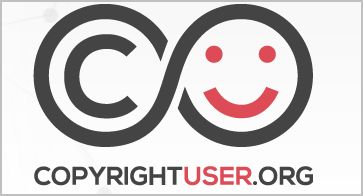 FIF, the CIPPM-led team went on to secure RCUK funding provided by CREATe, University of Glasgow in August 2013 to extend the scope of the project.
FIF, the CIPPM-led team went on to secure RCUK funding provided by CREATe, University of Glasgow in August 2013 to extend the scope of the project.
The work on Phase II of copyrightuser.org is now underway.
The copyrightuser.org team consists of:
- Dr. Dinusha Mendis (Principal Investigator & Co-Director CIPPM)
- Mr. Bartolomeo Meletti (Lead Multimedia Producer and CIPPM Research Assistant)
- Ms. Hayleigh Bosher (PhD Candidate (Copyright) and CIPPM Research Assistant)
- Professor Martin Kretschmer (Principal Investigator & Director CREATe, University of Glasgow)
- Dr. Kris Erickson (Co-Investigator, CREATe, University of Glasgow).
The team is further assisted by an Editorial Board consisting of Professor Maurizio Borghi (Director, CIPPM); Professor Ruth Towse (Co-Director, CIPPM); and Professor Ronan Deazley (Professor of Copyright Law, University of Glasgow).
We invite you to visit copyrightuser.org and welcome your feedback.
BU paper shortlisted for the UKLA/ Wiley-Blackwell Research in Literacy Education Award 2014
 Congratulations to Associate Professors Julian McDougall and Richard Berger in the Media School who have had a paper (Berger, Richard and McDougall, Julian (2013) Reading videogames as (authorless) literature. Literacy 47 (3): 142-149) shortlisted for the UKLA/ Wiley-Blackwell Research in Literacy Education Award 2014.
Congratulations to Associate Professors Julian McDougall and Richard Berger in the Media School who have had a paper (Berger, Richard and McDougall, Julian (2013) Reading videogames as (authorless) literature. Literacy 47 (3): 142-149) shortlisted for the UKLA/ Wiley-Blackwell Research in Literacy Education Award 2014.
This is an output from Julian and Richard’s AHRC funded project on how the videogame L.A. Noire (which was released for Playstation 3 and XBOX 360 in May 2011) can be used to teach the English Literature curriculum (see our previous blog post: http://blogs.bournemouth.ac.uk/research/2012/02/01/bus-richard-berger-wins-an-ahrc-grant/). This was an open access publication, funded from BU’s Open Access Publication Fund.
The award is given annually for papers published in each of UKLA’s journals – Literacy and Journal of Research in Reading (JRR) – judged to be exemplary in terms of the following criteria:
- Relevance to readership – taking account of an international readership
- Accessibility to a knowledgeable readership
- Original content which contributes significantly to existing knowledge or the development of new knowledge, policy or strategy
- Clear theoretical position
- Methodologically sound research processes /design appropriate to the theoretical standpoint
- Sound level of critical analysis
- Relevant and appropriate citation base
The shortlists will be announced online next week. Good luck Julian and Richard!
You can download a copy of the paper on BURO here: http://eprints.bournemouth.ac.uk/20847/
Launch of the Copyright User Portal – 14th February 2014
The Centre for Intellectual Property Policy and Management (CIPPM), Business School, will hold a lunch-time event on Friday 14th February 2014, to launch the Copyright User portal. The event will take place from 12-1 pm in EB302. A light lunch will follow from 1 – 1.30 pm providing a further opportunity to chat to the project team.
The Copyright User portal is an independent online resource aimed at making UK copyright law accessible to creators and members of the public.
online resource aimed at making UK copyright law accessible to creators and members of the public.
The project was funded by BU’s Fusion Investment Fund in 2012 and was developed in collaboration with CIPPM and the Centre for Excellence in Media Practice (CEMP)
In August 2013, the CIPPM-led team secured RCUK funding provided by CREATe, University of Glasgow to extend the scope of the project.
The online resource is applicable to anyone who uses copyright – whether it be in education, music, film, gaming, artistic work etc. The objective of the portal is to inform creators on how to protect their work; how to license and exploit it; and how to legally re-use the works of others.
It is a useful tool for creators and the UK creative industries and as such the content is relevant to the various creative stakeholders in the UK.
The session will be useful for anyone involved in the use of copyright works. The session will include presenting the online resource to the attendees and through an interactive session gather feedback on user experience.
To book your place at this event, please visit this page.
The Copyright User team consists of:
Dr. Dinusha Mendis (Principal Investigator & Co-Director CIPPM);
Mr. Bartolomeo Meletti (Lead Multimedia Producer and CIPPM Research Assistant);
Ms. Hayleigh Bosher (PhD Candidate (Copyright) and CIPPM Research Assistant);
Professor Martin Kretschmer (Principal Investigator & Director CREATe, University of Glasgow); and
Dr. Kris Erickson (Co-Investigator, CREATe, University of Glasgow).
The team is further assisted by an Editorial Board consisting of Professor Maurizio Borghi (Director, CIPPM); Professor Ruth Towse (Co-Director, CIPPM); and Professor Ronan Deazley (Professor of Copyright Law, University of Glasgow).
BU academics are co-appointed as Co-Editors of the Journal of Media Practice
Dr Julian McDougall and Professor Neal White (Media School) have been appointed as Co-Editors of the Journal of Media Practice (JMP). This is a significant moment for the only print-based peer-reviewed journal to focus on practice based media teaching and research as it moves to Routledge and into a new digital publishing future with its online presence, JMP Screenworks.
The proposal outlined a strategy for collaboration between CEMP and colleagues working in all areas of media practice and pedagogic enquiry in the Media School. The vision for the journal is interdisciplinary and, in the development of a full editorial strategy, Neal and Julian will invite researchers and practitioners in the school to contribute. They will also be working with the editorial board, Routledge and Auteur to plan a productive relationship between CEMP’s existing journal, MERJ and JMP.
This is a real opportunity to collaborate across the Media School and the range of disciplines and to impact on the dissemination of media practice research and developments in digital publishing.
Media and Information Education in the UK: Recommendations to the European Union
Dr Julian McDougall from BU’s Centre for Excellence in Media Practice (CEMP) will make recommendations on UK media education at a conference in Paris later this month.
The conference brings together comparative analyses on media and information education from EU member states and Dr McDougall will present the UK report alongside his London School of economics (LSE) research collaborators.
Dr McDougall said: “In the UK report, we have mapped media education provision in the UK against the various EC and EU frameworks and draw a clear conclusion, that the UK is rich with expertise, energy and leadership for media and information education, and to a significant extent is the envy of other European nations in this respect, but deeply entrenched prejudice against ‘media studies’ means that promoting media literacy through schools is continually undermined.”
The report examines the progression of media education through three key phases:
- Pre-OFCOM: the establishment of Media Studies, Film Studies and other related areas in the curriculum.
- 1997 – 2011 New Labour Government and OFCOM media literacy intervention with some correspondence to Media Studies
- Post-OFCOM Coalition Government, discontinuation of media literacy strategies
When examining the current ‘state of play’ in UK media literacy education, Dr McDougall and his colleagues looked at four areas: the study of media in formal secondary and higher education through curriculum subjects such as Media Studies, Film Studies and Media/non-literary textual analysis in English as well as vocational courses; broader, less formal examples of media literacy across the UK curriculum and extra-curricular activities such as literacy education in primary schools and related subjects like Citizenship, Sociology and History; e-safety policies in the school system; and media & information literacy outside of formal education.
Having examined the current scope and provision of UK media education and media literacy, the report identifies a scarcity of funding and training and a contradiction between support for creative industry employability, digital literacy and e-safety and derision towards, neglect of and undermining (through UCAS tariff distinctions, for example) media education where it already exists for thousands of young people.
At the same time, the recent Next Gen Report, well received by policy-makers, fails to locate media education as a context for teaching digital programming and coding. The UK report predicts that the combined effect of proposed secondary curriculum reform and this response to the Next Gen report will place UK media education in further ‘limbo’ between the cultural value afforded to English Literature and Art as academic /creative disciplines for their own sake and the vocational importance of strong media and technological literacy, such as those assumed for games and effects education within the STEM subject cluster, in today’s modern media-saturated tech-savvy workplace.
Three clear and compelling recommendations are presented from the UK report’s findings:
- The model of media literacy currently provided by the various EU and EC strategies is too broad in scope and ambition for mainstream education to ‘deliver’ and therein lies a fundamental mismatch between the objectives of media literacy as articulated in policy and the capacity of education as the agent for its development in society
- To coherently match Media Studies in the UK to the policy objectives for media literacy expressed in European policy, Government funding (for teacher training), support and endorsement for Media Studies is essential
- Funding should be prioritised for broader research into the capacity for Media Studies in schools and colleges to develop media and information literacy as defined by the European Union.
The conference is hosted by the French National Research Agency project TRANSLIT (convergence between computer, media and information literacies), in association with the European network COST “Transforming Audiences/Transforming Societies.” It takes place on 13-14 December at the Grand Amphi of Sorbonne Nouvelle University, Paris.
Dr McDougall was lead author on the report, entitled Media and Information Education in the UK, alongside his LSE collaborators Professor Sonia Livingstone (Leader of the TRANSLIT/COST Media Literacy Task Force) and Dr Julian Sefton-Green.
The Teaching Exchange Workshop Goes International
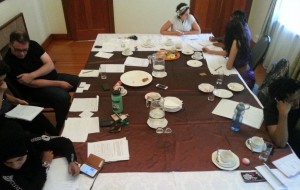 Developed by Bournemouth University’s Dr. Anna Feigenbaum alongside Dr. Mehita Iqani, the Teaching Exchange Workshop was designed to foster a space for collegiate interaction and sharing experiences of the challenges and opportunities involved in teaching. Piloted at five Universities across the country in 2010-2011 through support from the Higher Education Academy, the Teaching Exchange Workshop offers colleagues a chance to work through departmental issues including curriculum development, diverse student expectations, and teaching time management.
Developed by Bournemouth University’s Dr. Anna Feigenbaum alongside Dr. Mehita Iqani, the Teaching Exchange Workshop was designed to foster a space for collegiate interaction and sharing experiences of the challenges and opportunities involved in teaching. Piloted at five Universities across the country in 2010-2011 through support from the Higher Education Academy, the Teaching Exchange Workshop offers colleagues a chance to work through departmental issues including curriculum development, diverse student expectations, and teaching time management.
Participating institution, the London School of Economics and Politics, said the workshop activities “got colleagues thinking creatively and learning from each other. These could be applied by any department wanting to improve teaching practice and make best use of their staff’s experience and knowledge.”
On November 8, 2013 Dr. Feigenbaum was invited to South Africa to facilitate the first international Teaching Exchange Workshop at Wits University in Johannesburg. Drawing on successes of the pilot workshops in the UK, the Wits workshop featured new participatory exercises for generating innovative assignments that bridge practice and theory, and for problem-solving challenges associated with teaching in a time of 24/7 email and social media access.
As a low-cost and high productivity model for teaching quality enhancement, Dr. Feigenbaum and Dr. Iqani are keen to see the TE Workshop continue to grow both nationally and internationally. To learn more about the Teaching Exchange Workshop, you can download a free TE Workshop handbook. You can also read a sample of pilot study results published in the Journal of Further and Higher Education.
CEMP and CIPPM Researchers co-publish reports on parody for the UKIPO
Dr. Kris Erickson (CEMP), Dr. Dinusha Mendis and Professor Martin Kretschmer (CIPPM) have co-authored a series of reports commissioned by the UK Intellectual Property Office (UKIPO) on parody and pastiche. Empirical and legal research is presented in a sequence of three reports published by the UKIPO in March 2013. The three studies commissioned by UKIPO evaluate policy options in the implementation of the Hargreaves Review of Intellectual Property & Growth (2011).
Study I authored by Dr. Kris Erickson presents new empirical data about music video parodies on the online platform YouTube
Study II authored by Dr. Dinusha Mendis and Professor Martin Kretshcmer offers a comparative legal review of the law of parody in seven jurisdictions
Study III authored by Dr. Kris Erickson, Professor Martin Kretschmer and Dr. Dinusha Mendis provides a summary of the findings of Studies I & II, and analyses their relevance for copyright policy.
All three reports can also be found here
Study I presents new empirical data about music video parodies. A sample of 8,299 user-generated music video parodies was constructed relating to the top-100 charting music singles in the UK for the year 2011.
Study II discusses of the legal treatment of parodies in seven jurisdictions that have implemented a copyright exception for parody. The jurisdictions include Australia, Canada, France, Germany, Netherlands, UK, and USA. Study II identifies possible regulatory options for benefiting from a parody exception to copyright infringement, and distils the (economic and non-economic) rationales developed by legislators and courts. The report concludes by setting out a list of policy options.
Study III brings together the legal analysis and the empirical data. Each of the policy options identified in Study II is examined for its likely impact on the empirical sample gathered in Study I.
The research team comprising of Dr. Kris Erickson, Dr. Dinusha Mendis and Professor Martin Kretschmer presented the following key findings arising from the three Studies:
- Parody is a significant consumer activity: On average, there are 24 user-generated parodies available for each original video of a charting single.
- There is no evidence for economic damage to rights holders through substitution: The presence of parody content is correlated with, and predicts larger audiences for original music videos.
- The potential for reputational harm in the observed sample is limited: Only 1.5% of all parodies sampled took a directly negative stance, discouraging viewers from commercially supporting the original.
- Observed creative contributions were considerable: In 78% of all cases, the parodist appeared on camera (also diminishing the possibility of confusion).
- There exists a small but growing market for skilled user-generated parody: Parodists who exhibit higher production values in their works attract larger audiences, which can be monetized via revenue share with YouTube.
BU’s Richard Berger wins an AHRC grant!
 Congratulations to Dr Richard Berger, Associate Professor and Head of Postgraduate Research in the Media School, who has won an AHRC grant to research how the videogame L.A. Noire (which was released for Playstation 3 and XBOX 360 in May 2011) can be used to teach the English Literature curriculum. This is a collaborative grant led by Dr Julian McDougall at the University of Wolverhampton. Richard and Julian have collaborated previously on a number of journal papers, and are co-editors of the Media Education Research Journal.
Congratulations to Dr Richard Berger, Associate Professor and Head of Postgraduate Research in the Media School, who has won an AHRC grant to research how the videogame L.A. Noire (which was released for Playstation 3 and XBOX 360 in May 2011) can be used to teach the English Literature curriculum. This is a collaborative grant led by Dr Julian McDougall at the University of Wolverhampton. Richard and Julian have collaborated previously on a number of journal papers, and are co-editors of the Media Education Research Journal.
About the AHRC award: The diegesis is set in 1947, and the game appropriates conventions from American film noir texts of the 1940s and 1950s, as well as later texts such as Alphaville (Godard, 1965) and L.A. Confidential (Hanson, 1997). The novels of Elmore Leonard and James Ellroy also contribute to this sphere of influence. Unlike these novels and films, this videogame is an author / auteur-less digital text which is pre-designed but ‘written’, in narrative terms, only when read (played). However, its highly literary and filmic nature would seem to be useful for teaching / learning in the English Literature curriculum.
 As a research subject, L.A. Noire offers an opportunity to revisit ideas of adaptation and appropriation in the context of this digital transformation of the ‘hard-boiled detective novel’, and to further examine the relationship of exchange that exists between linear and digital texts. Videogames are still largely ignored in education as textual subjects but L.A. Noire is potentially transgressive, in terms of its potential to be taught / studied as a book (novel) in its digitally transformed state.
As a research subject, L.A. Noire offers an opportunity to revisit ideas of adaptation and appropriation in the context of this digital transformation of the ‘hard-boiled detective novel’, and to further examine the relationship of exchange that exists between linear and digital texts. Videogames are still largely ignored in education as textual subjects but L.A. Noire is potentially transgressive, in terms of its potential to be taught / studied as a book (novel) in its digitally transformed state.
This project will explore the ways in which gamer-students and teachers might work with L.A. Noire to reconfigure dynamics of expertise, begin a remediation of the English Literature curriculum and respond to the digital transformation of what we think it means to ‘read’ in order to think differently about the function of books and the nature of textual authority in the digital age.
Congratulations Richard – this is an excellent achievement! 😀
Richard is a peer reviewer for the AHRC which he believes directly informs his own bidding activity – you can read his review of the benefits of being a peer reviewer here: Life as an AHRC Peer Reviewer. He has also made use of our internal peer review service (the RPRS) to help to strengthen his proposals prior to submission – you can read his review of the RPRS here: One Man’s Experience of the Research Proposal Review Service
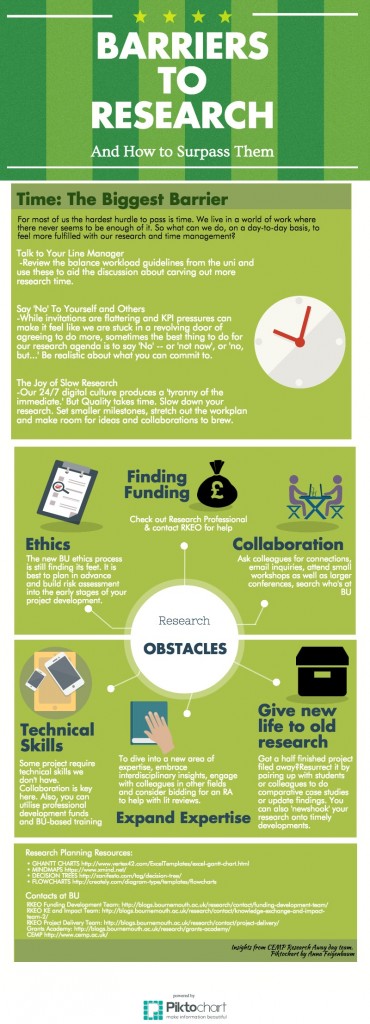


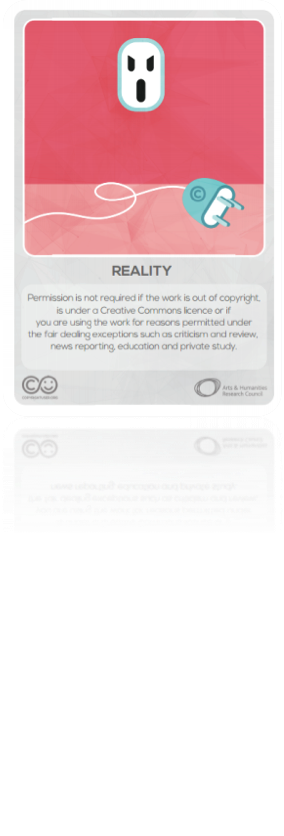

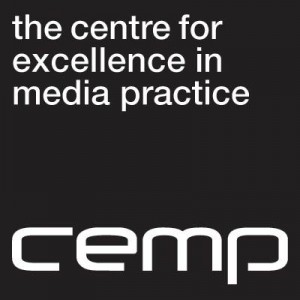












 Upcoming opportunities for PGRs – collaborate externally
Upcoming opportunities for PGRs – collaborate externally BU involved in new MRF dissemination grant
BU involved in new MRF dissemination grant New COVID-19 publication
New COVID-19 publication MSCA Postdoctoral Fellowships 2024
MSCA Postdoctoral Fellowships 2024 Horizon Europe News – December 2023
Horizon Europe News – December 2023